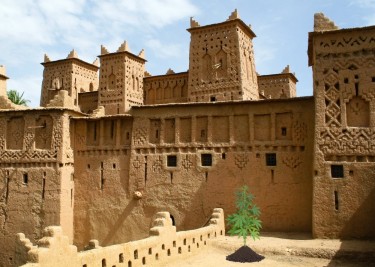
Will Pakistan join the hemp and cannabis green rush by the end of 2022?
New information about a country or state preparing to pass favorable laws for the cannabis industry is generating a surge of excitement among cannabis enthusiasts. Why is this so motivating news? This is because we already know that cannabis has more to offer the health sector than is currently used.
We also know that criminalization and lack of legalization are the stumbling block that prevents people from experiencing the bliss that marijuana offers in alleviating certain health challenges. When cannabis reform news like this comes from a conservative nation like Pakistan, it is another opportunity to ask the American government, “What are you waiting for to legalize marijuana at the federal level?”
The Pakistani Vow to Advance Legalization
Pakistan has now joined the long list of countries that have succumbed to marijuana legalization that seems to be gripping many nations lately. Some experts believe that in the past 10 years, these nations have realized their missed opportunities with cannabis. At the same time, others believe countries are only looking for ways to make money from cannabis revenues after they have been hit by the negative effects of the COVID-19 pandemic.
For whatever reasons, we are aware that a wave of marijuana reform is happening at a breakneck pace than before. As the world works towards a pandemic-free future, nations wonder, “What can cannabis do for us economically and medicinally?”
In a recent meeting of the National Assembly’s Science and Technology Committee, Shibil Faraz, the Pakistani Minister of Science and Technology, addressed the value of the global marijuana market within a few years, and Pakistan’s role is keen to be a part of it. In addition, the Pakistani government is ready to start growing hemp on an industrial scale. First, the supplies will be shipped into the country using greenhouses built in various parts from Islamabad to Lahore and Karachi. Hemp production has also been legal in the country since September 2020 (for medical and health purposes).
Pakistan remains proactive with this move, experiments with cannabis oil have started (just like Germany is currently doing), and the government is expected to approve four sites for growing cannabis. The government also plans to ensure tight control of the process so that the materials are not exported unless there are strict global control apparatus. So the Pakistani government has done its homework and it is evident that it will formalize the process through a legal framework by the end of 2021.
A Brief History of Marijuana in Pakistan
The latest move by the Pakistani government is based on the influence of modern global marijuana reforms taking place in different countries. But in addition to this global moment, cannabis has a long and rich history in Pakistan and even India (Pakistan split from India to become a country at the end of World War II).
Hashish is consumed in smoked (charas) and liquid (bhang) forms. In the 1980s, under pressure from former US President Ronald Regan, criminal laws were introduced against substances such as marijuana. Since Regan’s hostile influence on cannabis, politicians in Pakistan have not changed their stance on the substance, even in the face of overwhelming evidence and research that it helps alleviate certain medical conditions.
Some of the politicians who hold on to old beliefs even argue that cannabis violates their Muslim beliefs. This is because the use of marijuana was documented in early and historical Sufi and Hindu texts. Sufis continue to use the drug as part of their religious worship to this day and believe that it provides relaxation and opens the mind.
In the 1960s and 1970s, Pakistan was an exciting place to stop on the “hippie highway,” even the hash market in Peshawar, which is why many popular strains came from there. The marijuana grown in this part of the world is excellent in purple and gray in color and can grow very long when grown. Currently, Pakistan is ahead of India in formalizing its marijuana market.
Experts are already predicting India will follow Pakistan’s lead, which means other countries in the Middle East and beyond that hold back could try. This is incredible news for the global marijuana market. The more countries positively reform their cannabis laws, the easier it becomes for more people who need it to make marijuana available.
Why is this new development so exciting?
This news is very intriguing as Pakistan has an abundance of landrace strains of marijuana and this is the type of cannabis that grows naturally in the wild. It also means that the stems are stable and the plants are of an increased quality that is in line with the standard around the world.
Pakistan becomes a valuable exporter of these potent cannabis strains to the rest of the world. The seeds are useful for exporting materials, and since the seeds are already on the planning board, it will boost production near Rawat.
There are several ways to use cannabis plants as well, and it is evident that Pakistan is trying to explore ALL of these avenues. If cannabis is indigenous to an area, it can be a sustainable plant as it supports the economic development of its host country, which is beneficial for both engaged and emerging markets.
Bottom line
Pakistan is no longer holding back from joining the global cannabis discourse, and this is a positive sign that its neighboring countries may be ready to take the same step as well. Cannabis is making headlines again in a country many experts least expected to thrive. Pakistan is about to leap into a bright future for its marijuana industry, and it is sure to succeed. Keep a close eye on the latest on the official end-of-year announcement and watch as other highly conservative nations follow suit.
MIDDLE EAST MARIJUANA NEWS, READ MORE ..

WHAT ARE MARIJUANA CHARAS, AN INDIAN PRODUCT, READ THIS!
OR..

MOROCCO MOVES TO LEGALIZE MARIJUANA, READ HERE WHEN!

Post a comment: